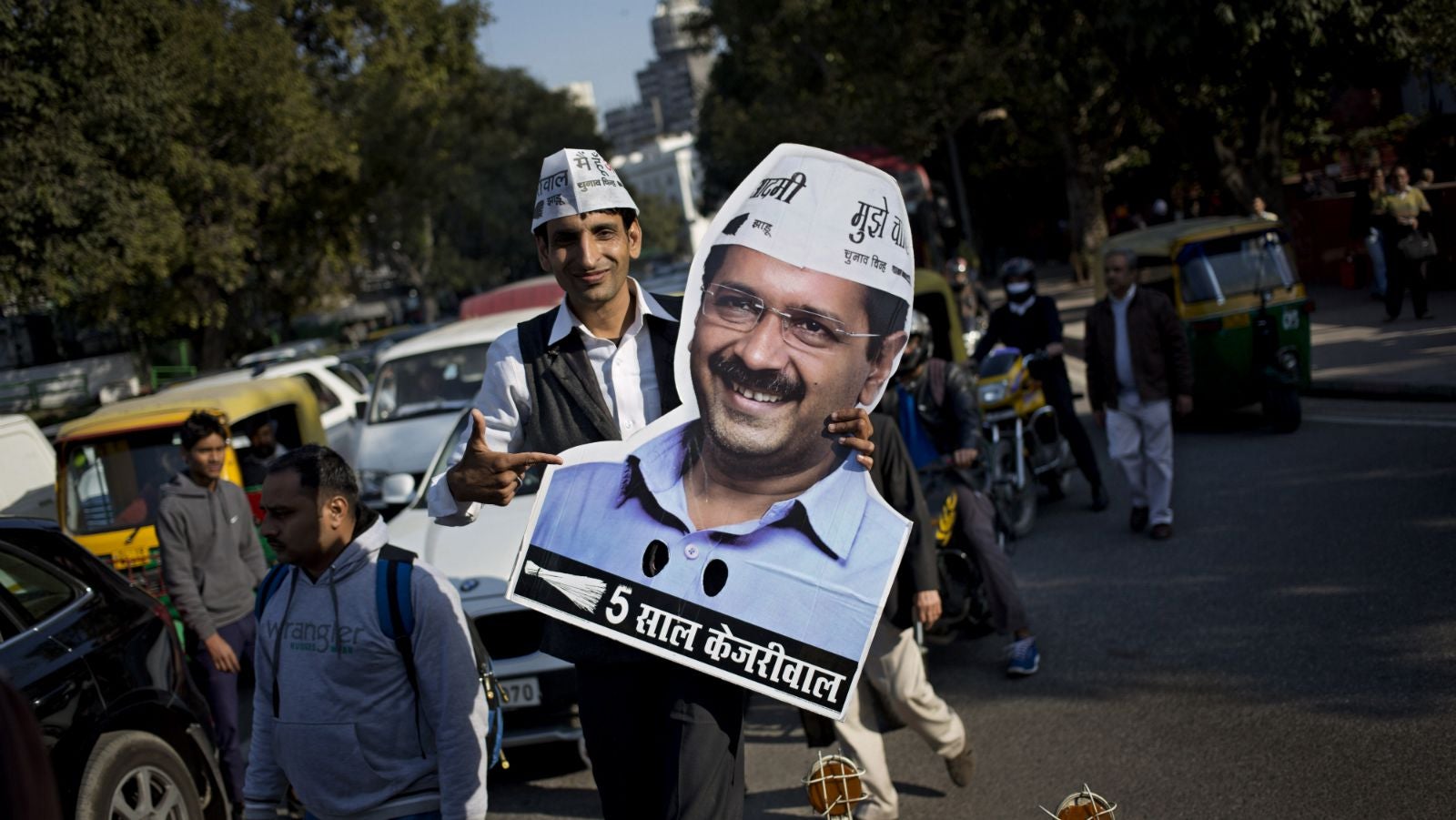Three colossal mistakes that cost the BJP the Delhi elections
By noon on Feb. 10, it became clear that something historical was unfolding in Delhi. By the end of the day, the upstart Aam Aadmi Party (AAP)—formed just 26 months ago—had won the state assembly elections so comprehensively that the opposition could be bundled into a hatchback.


By noon on Feb. 10, it became clear that something historical was unfolding in Delhi. By the end of the day, the upstart Aam Aadmi Party (AAP)—formed just 26 months ago—had won the state assembly elections so comprehensively that the opposition could be bundled into a hatchback.
Led by the diminutive but doughty campaigner Arvind Kejriwal, the AAP won 67 out of 70 legislative assembly seats, several of them with a margin of well over 60,000 votes and a total vote share of over 54%.
It was unthinkable even a few weeks ago.
Opinion polls were once putting the Bharatiya Janata Party (BJP) well ahead of rivals. The nationalist party had stormed to power at the centre in May, riding on the immensely popular persona of its prime ministerial candidate Narendra Modi and the strategising skills of his wily lieutenant Amit Shah.
Following the thumping win in the general elections, Modi and Shah—who was elevated as the party president—planted victory flags in the states of Maharashtra, Haryana, Jharkhand and became the second biggest party in Jammu and Kashmir. Helped by the disciplined volunteers of its ideological mothership, Rashtriya Swayamsevak Sangh (RSS), the BJP juggernaut seemed unstoppable.
Angry Delhi
There are several reasons for the BJP’s fall from grace in Delhi, a city-state fed up with rampant corruption, boorish street culture and vanishing regard for human dignity. The party had been in power at the centre for eight months, but there was hardly anything to show on the ground except Modi’s high-profile engagements with foreign leaders and rock-show like performances in New York’s Madison Square Garden and Sydney’s Olympic Park.
In November and December last year, many areas in Delhi such as Trilokpuri and Bawana were gripped by communal tensions as low-intensity riots broke out. Several churches were attacked; one just five days before polling day. Many voters suspected ultra right-wing Hindus to be behind the attacks and communal provocations.
Three mistakes
But perhaps the biggest mistakes the BJP made were in its election strategy. Here are the three colossal blunders made by the party:
First, it declared a chief ministerial candidate too late. And when it did, its choice Kiran Bedi, a former police officer and Kejriwal’s one-time fellow activist with an abrasive style of functioning, was hardly cut out for politics. She was widely seen as a shield to take the flak and protect Modi in case the party lost.
The second strategic mistake was bypassing the local party set-up. Each of the 70 constituencies was managed by members of parliament and ministers who were unfamiliar with the territory. Even many RSS volunteers, the backbone of BJP’s door-to-door campaign, were outsiders. Besides, many RSS functionaries and volunteers who considered Modi as their hero are now turned off by his self-promotion. Some even believe that the prime minister and Shah are beholden to corporate interests.
The third error was the campaign itself, which assumed Modi’s speeches would be enough to create a wave. Besides, voters were put off by advertisements targeting Kejriwal and his family. Allegations of the AAP accepting donations from dubious sources appeared to be orchestrated and did not go down well with voters, especially when the AAP was the only party making detailed disclosures of its funding almost in real time. In contrast to the smiling persuasiveness of AAP volunteers, BJP workers came across as cocky and brash.
“It was a much-needed slap (for Modi and Shah),” one long-time RSS member who was part of the campaign said of the defeat.
The RSS may see the loss as leverage against the BJP but it certainly shows that Indian democracy is becoming more sophisticated. While it gave Modi an outright victory last year, it has now reminded the BJP that it cannot take voters for granted. It also showed that India is capable of throwing up alternatives when none appears to exist.
We welcome your comments at [email protected].